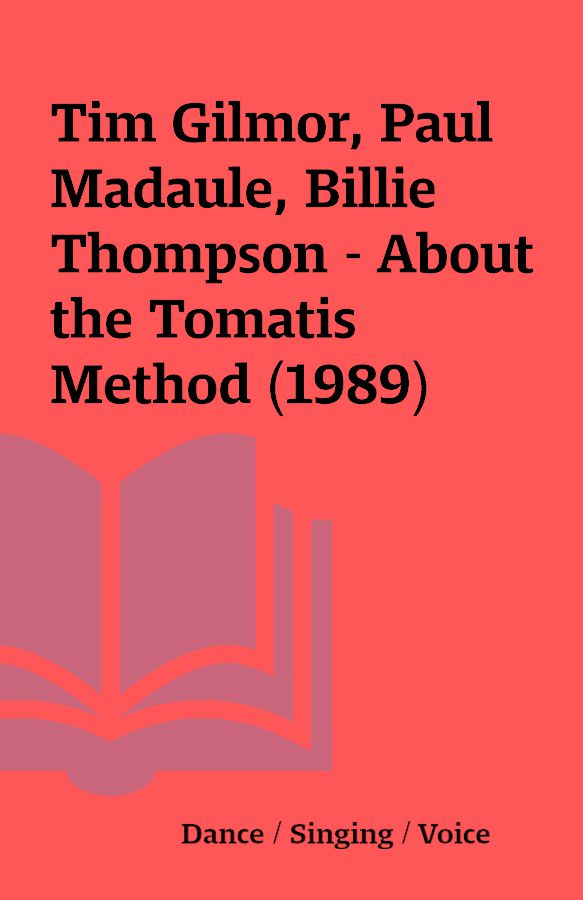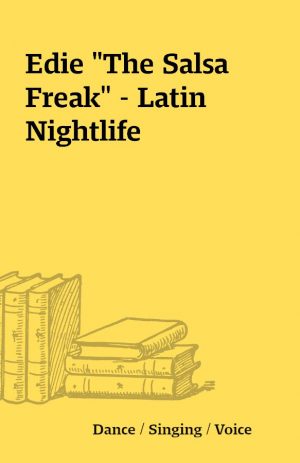Tim Gilmor, Paul Madaule, Billie Thompson – About the Tomatis Method (1989)
Tim Gilmor, Paul Madaule, Billie Thompson – About the Tomatis Method (1989).pdf
[1 eBook OCR – PDF]
Description
elib.tech Exclusive… sharing elsewhere will result in being banned!This book is part of the Tomatis Method (Sound Therapy) Books GBSTATUS: CLOSEDhttp://www.amazon.com/About-Tomatis-Method-Gilmor-Madaule/dp… “The long awaited foundation for what may well be the most importantresearch in sound, learning and health. The work of Tomatis will bring newquestions and important answers to musicians, teachers and learning specialists. Ihope this is the beginning of many publications on Tomatis’ innovative and evocativeresearch on the ear, brain and communication.” — Don G. Campbell Director, Institute for Music, Health and Education Composer & Author of Introduction to the Musical Brain Because a major portion of my professional life has beendevoted to the study of listening and its pervasive role in humancommunication, I am delighted to find a new book which deeplyexplores areas often overlooked or neglected by previous writers.Although during recent decades the importance of listening hasreceived increased attention and concern, it immediately becameobvious to the reader of this new publication that the significance of the human ear and its manifold functions are as yetlargely unrecognized. Nine different authors, bearing advanced educational degreesof various kinds, have made significant contributions to this text;but their views and their data are frequently based upon anddocumented by the publications of numerous other scholars,scientists, and medics. The central aim of the Tomatis Method ismade very clear. It is to improve an individual’s ability tolisten and desire to communicate. According to Dr. Tomatis,listening is both the most basic skill in language development andthe most important form of verbal communication. It is thefoundation for acquiring language and for developing socialcommunication skills. Among the areas analyzed and discussed are prenatal listening,dyslexia, auditory stimulation, autism, ‘audio-psycho-phonology,’language development, listening and communication, motorfunctions, balance and coordination, listening versus hearing,listening and learning skills, self-listening, prenatal listening and postnatal learning, foreign language integration, research andanalysis of experimental evidence, successful training programs and the role of music in their success.Access times:Contributors: Now, ratio-freeVIP+: 2 WeeksPU+: 8 WeeksUsers: 20 Years
You must be logged in to post a review.






Reviews
There are no reviews yet.